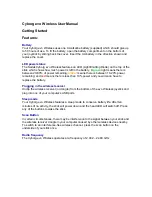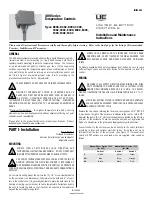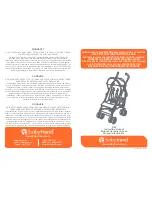
Modbus functions
158
FP Web-Server V2.810 EN
Function
Comment
A
Modbus-TCP server
(see p. 158)
A1 Modbus-TCP
server
Modbus-TCP client
FP Web-Server
PLC (see note 2)
A2 Modbus-TCP
server
Modbus-TCP client
FP Web-Server
multiple PLCs (see note 1 and note 2)
A3 Modbus-TCP
server gateway
Modbus-TCP client
FP Web-Server
Modbus RTU slave (see note 1)
B
Modbus-TCP client
(see p. 160)
B1 Modbus-TCP
client
PLC
FP Web-Server
Modbus-TCP
server
B3 Modbus-TCP
client gateway
Modbus RTU master (see note 1)
FP
Web-Server
Modbus-TCP server
B5 Modbus-TCP
client for data_logger
FP Web-Server internal control from
Data logger (see p. 61) and FPWEB
Script (see p. 73)
In addition: Modbus
RTU functions (for
PLCs that do not
support Modbus RTU
protocol)
B2 Modbus RTU
master
PLC
FP Web-Server
Modbus RTU
slave (see note 1)
B4 Modbus RTU
slave
Modbus RTU master (see note 1)
FP
Web-Server
PLC
For an overview on all functions, please refer to the block diagram (see p.
This function uses the 2nd RS232C (9-pin Sub-D connector).
Since Modbus protocol, in contrast to the PLC, only recognizes 4
different memory areas, a configurable address translation table
was implemented. This allows you to configure offsets so that
Modbus "coils" and "registers" correspond to the PLC's memory
areas: X, Y, R, DT, FL, WR, etc.
Various functions can be combined and used simultaneously.
Most functions support the same list of Modbus function codes.
You can configure all these functions manually or with the help of
the wizard.
17.2 Modbus-TCP server of the FP Web-Server in general
The FP Web-Server can be accessed by a Modbus-TCP client (SCADA) via
Ethernet for PLC data communication. To do so, the FP Web-Server
requests PLC data (MEWTOCOL protocol) via the 3-pin or/and 9-pin
RS232C port or the serial ports (RS485, USB) of the FP Web expansion
N o t e
















































